
The far-right falters: Outcomes of the French snap election
Mark Leonard welcomes Célia Belin to discuss the results of the French election

Mark Leonard welcomes Célia Belin to discuss the results of the French election
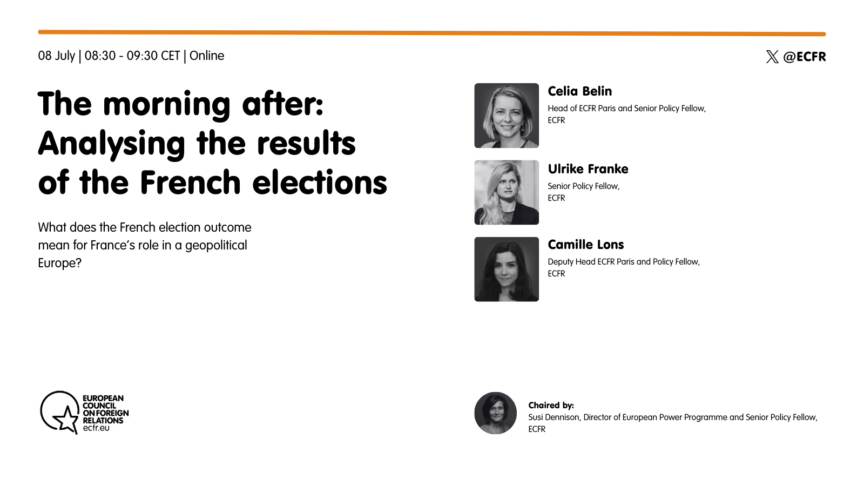
As France discovers the new making of its national assembly, this webinar will analyse the election results and reflect on their impact on a geopolitical…
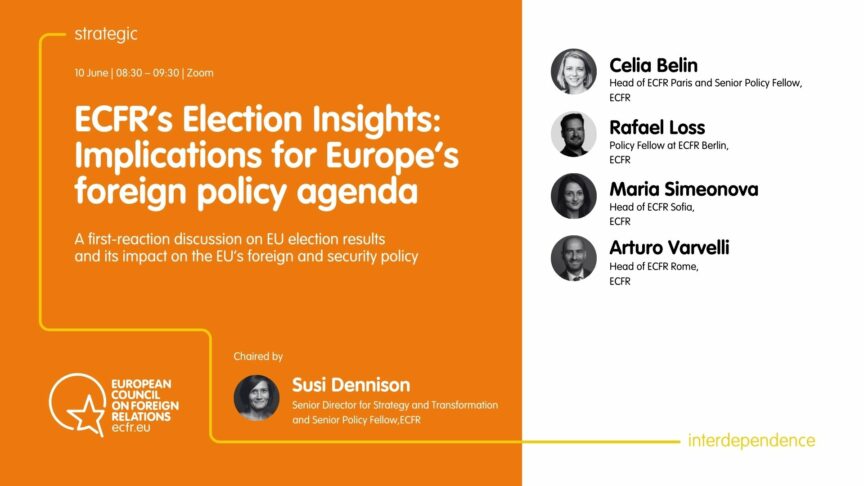
This webinar will provide a snapshot analysis of election results and their implications for Europe’s foreign policy and security agenda. Featuring perspectives from selected ECFR…
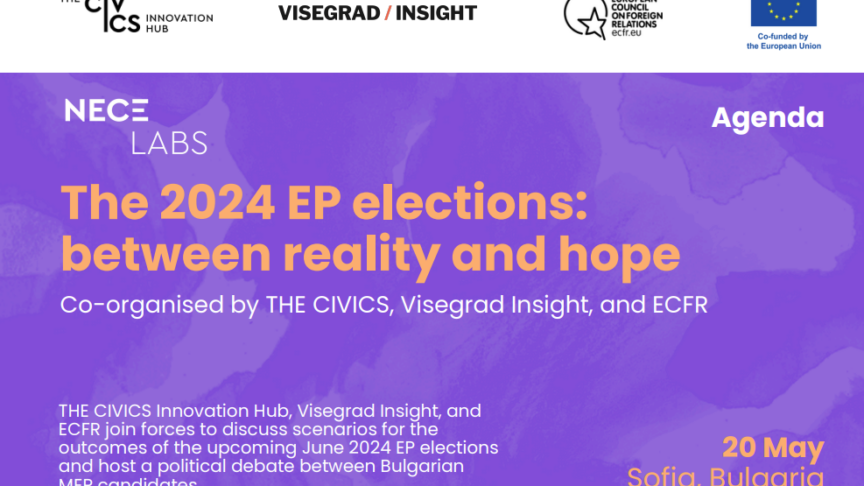
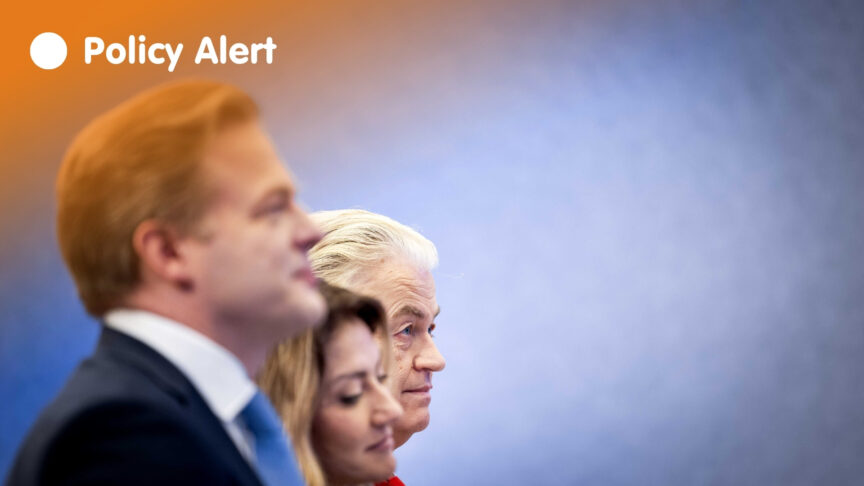
As Geert Wilders announces a provisional coalition deal for a far-right government, Europeans should brace themselves for a new era of Dutch politics
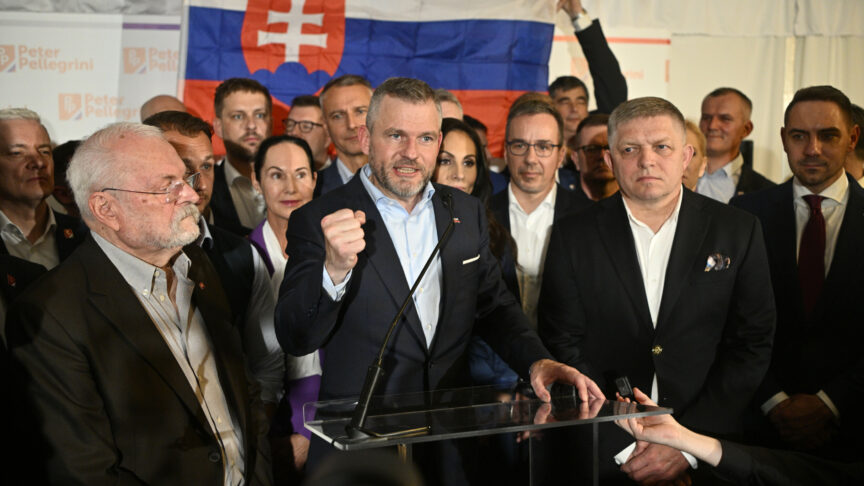
After Slovakia elected a populist president and a pro-Russian prime minister in a span of six months, the EU may be tempted to punish Bratislava. But this would risk making matters worse
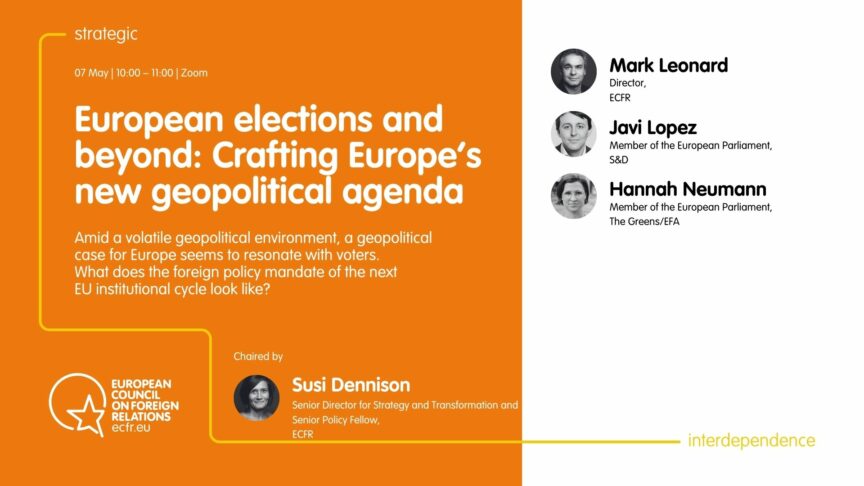
Amid a volatile geopolitical environment, ECFR’s recent public opinion poll ahead of the European elections shows that a geopolitical case for Europe resonates with voters,…
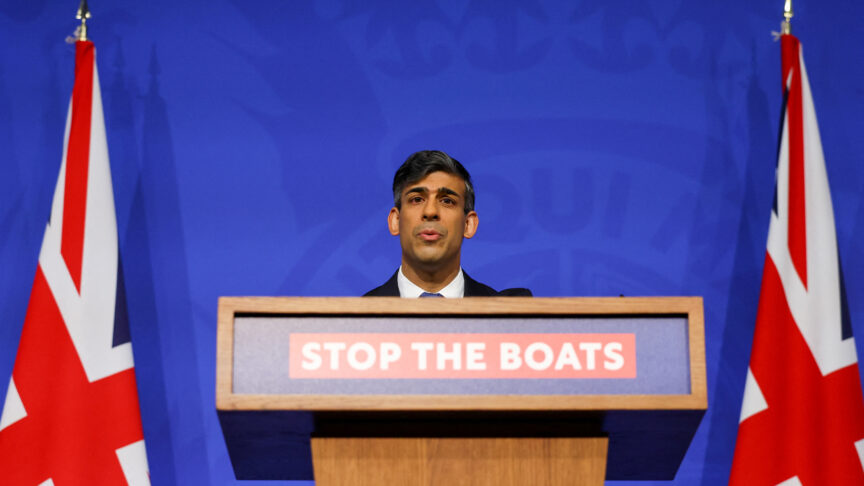
Finally passed into law, the UK’s bill to process migrants in Rwanda has been a political disaster. European governments should remember that not only does such a policy not work to deter migration, it will politically damage any party that adopts it

In their campaigns for the European parliament election, Germany’s pro-European parties must unite to effectively mobilise voters against the threat of the far-right party, Alternative for Germany
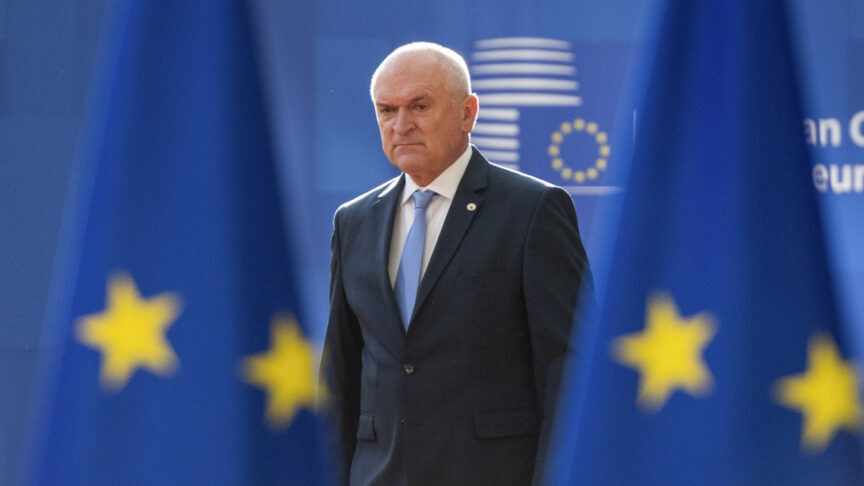
Facing its sixth election in three years, Bulgaria’s political instability risks marginalising Sofia’s role within the EU. To avoid this, the campaigns of pro-European politicians in the country must not lose sight of Bulgaria’s international position

The next French president should pursue a strong European foreign policy agenda to protect Europeans against the threats they are most concerned about

Europe’s covid-19 experience has been a tale of two pandemics – and the differences in each story could haunt the continent for many years to come
Support for membership of the European Union is currently high, but so too is pessimism about the future of the European project
Polls and interviews conducted for the paper indicate that German millennials are surprisingly conservative and liable to status quo bias
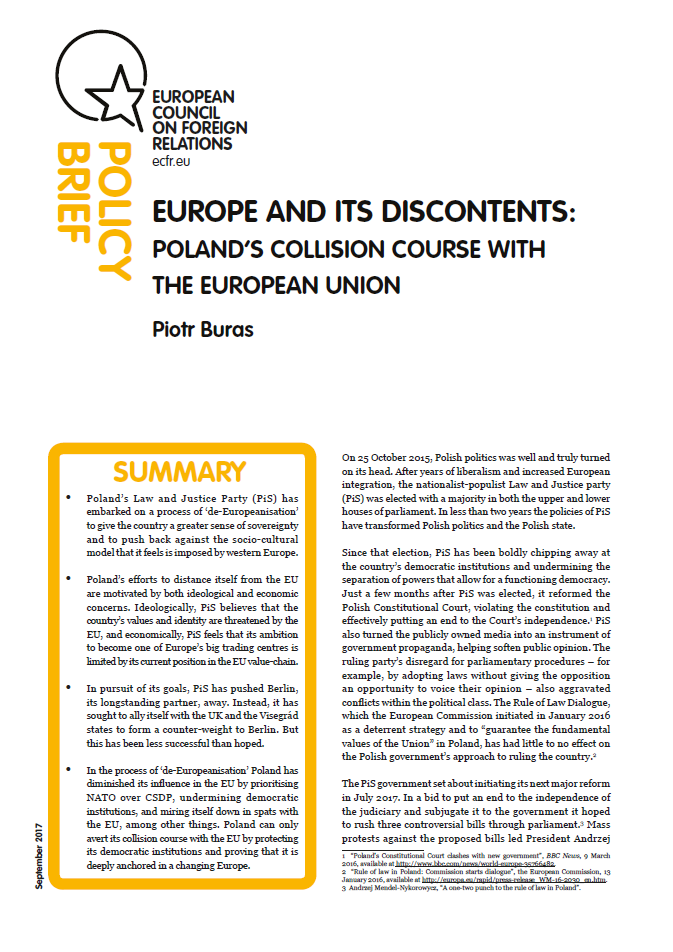
If Poland continues to drift away from the EU it will not only diminish its own influence, but also undermine the EU’s internal cohesion

As Geert Wilders announces a provisional coalition deal for a far-right government, Europeans should brace themselves for a new era of Dutch politics

After Slovakia elected a populist president and a pro-Russian prime minister in a span of six months, the EU may be tempted to punish Bratislava. But this would risk making matters worse

Finally passed into law, the UK’s bill to process migrants in Rwanda has been a political disaster. European governments should remember that not only does such a policy not work to deter migration, it will politically damage any party that adopts it

In their campaigns for the European parliament election, Germany’s pro-European parties must unite to effectively mobilise voters against the threat of the far-right party, Alternative for Germany

Facing its sixth election in three years, Bulgaria’s political instability risks marginalising Sofia’s role within the EU. To avoid this, the campaigns of pro-European politicians in the country must not lose sight of Bulgaria’s international position
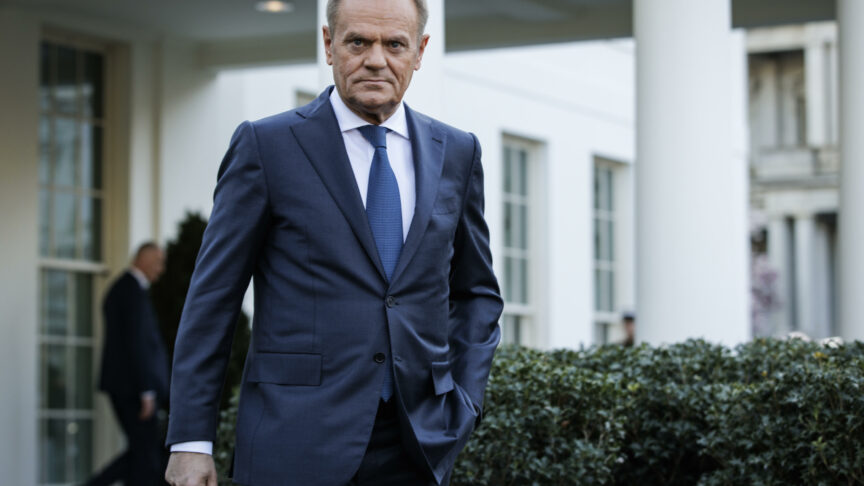
It is easier to defeat populists than to unravel the system they have built
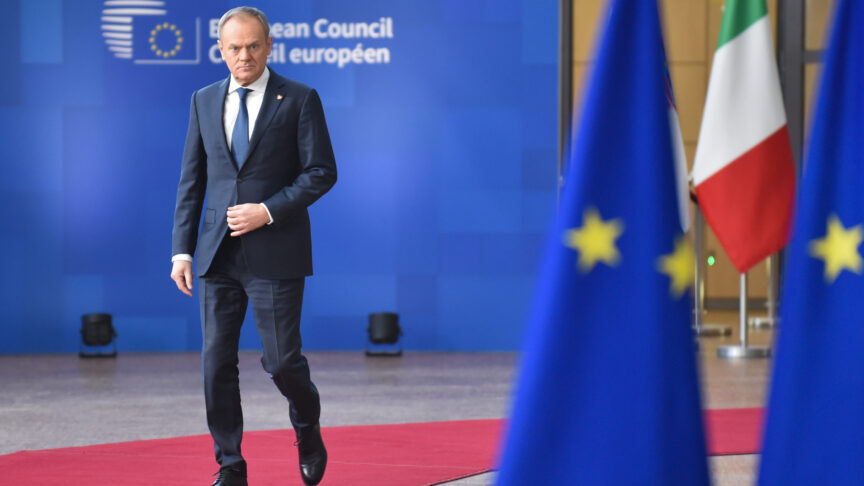
Poland’s October election has been hailed by Brussels as an emphatic return to EU centre stage. But as recent ECFR polling shows, Poles are not so thrilled with how the union is addressing their own concerns
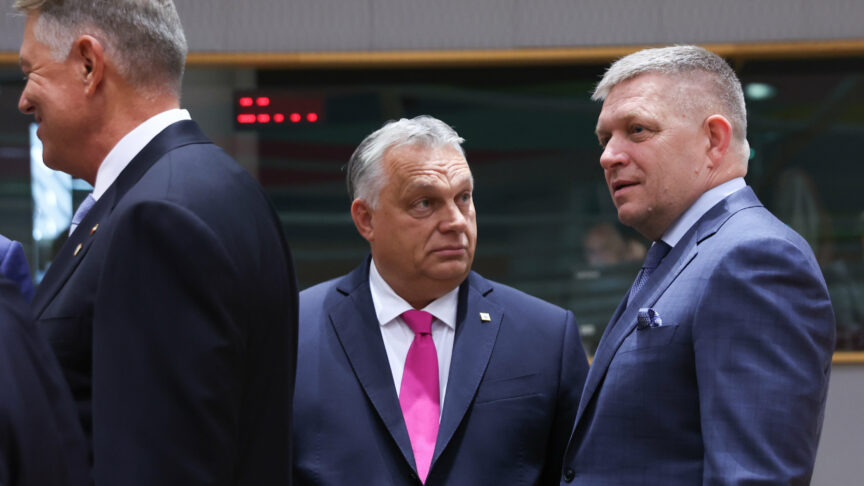
The new Slovak government seems a natural pro-Kremlin ally for Hungary. But there is still time for the EU, member states, and Ukraine to get Fico onside
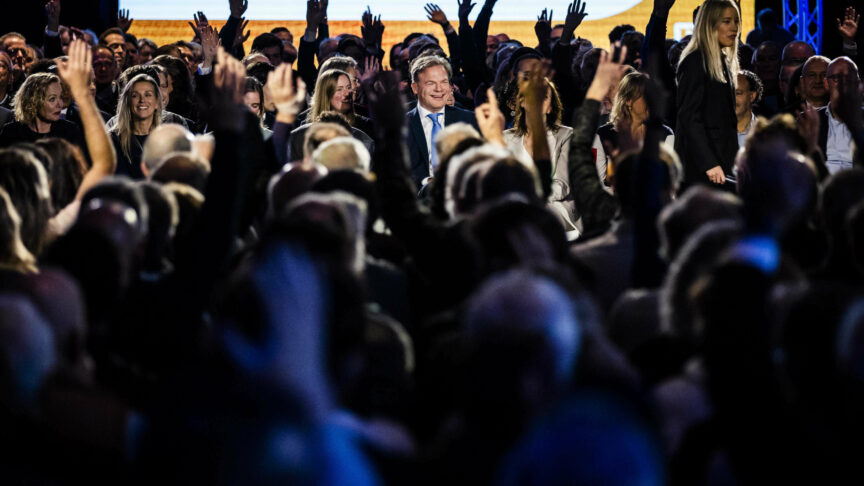
The next Dutch government will come to power amid a broad national consensus on several foreign policy topics. To capitalise on this opportunity, it will need to break with some of the traditional norms of Dutch European policy
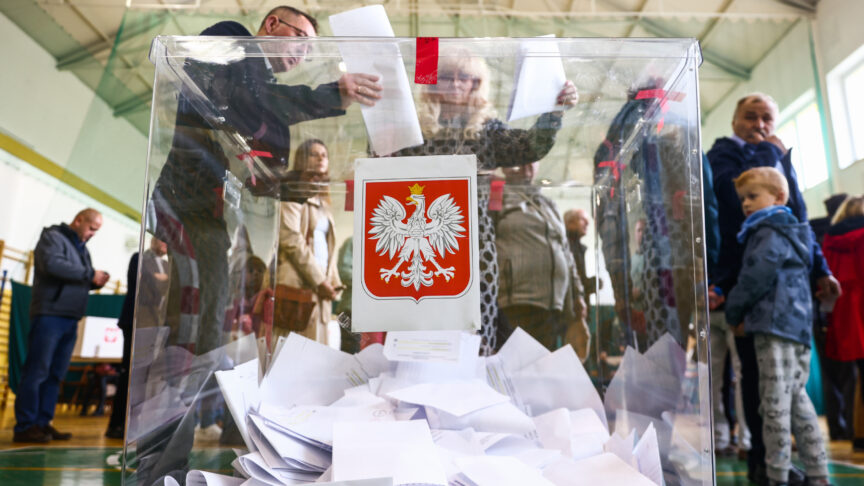
Poland is making its return to Europe – but Warsaw’s partners may still need to be a little patient yet
Summary With anti-Europeans on their way to winning more than one-third of seats in the next European Parliament, the stakes in the May 2019 election…

Mark Leonard welcomes Célia Belin to discuss the results of the French election
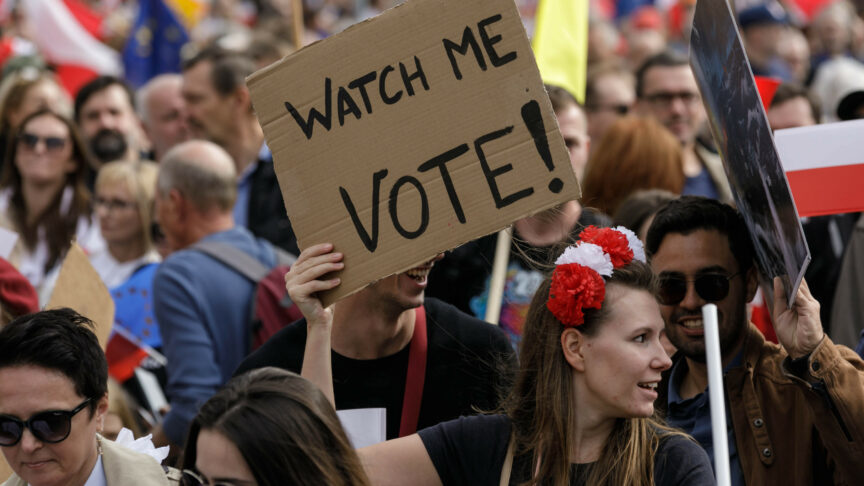
Mark Leonard welcomes José Ignacio Torreblanca and Piotr Buras to discuss recent developments in Spanish and Polish politics and their impact on Europe
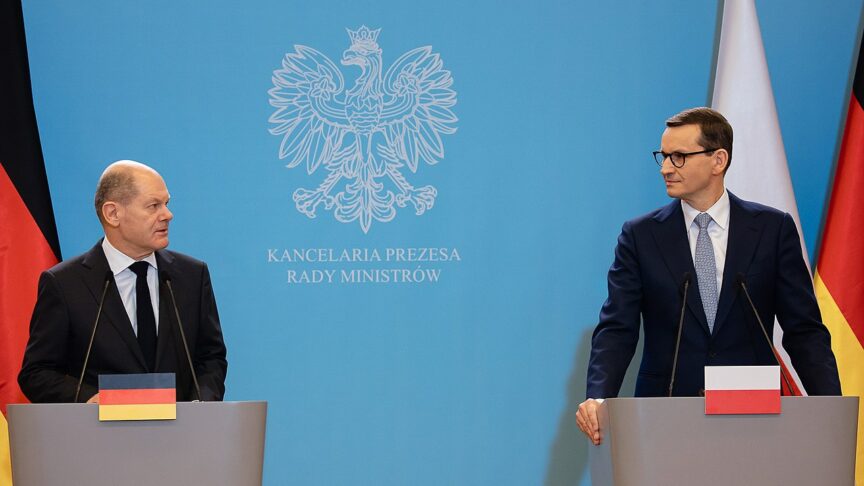
How has the war in Ukraine affected Polish politics and Poland’s relationship to its neighbours and the EU?

What would the freezing of EU-funds mean for Hungary-EU relations and Hungary’s role in the union?
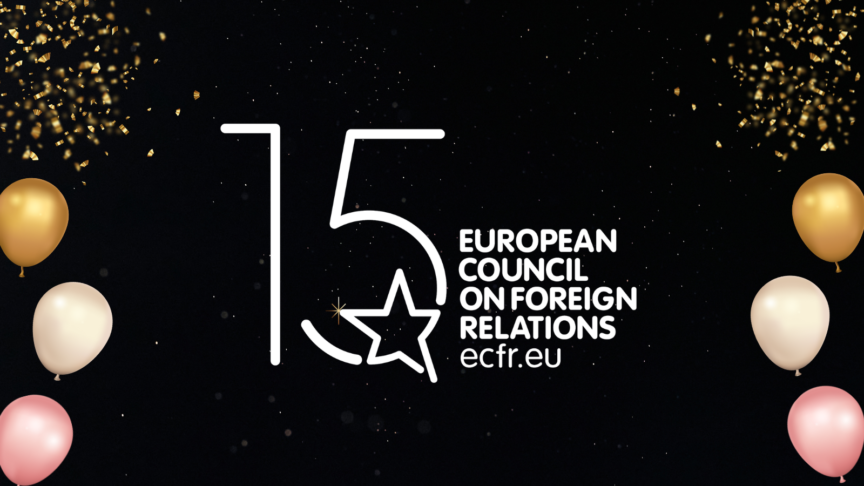
We turned 15! Time to reflect on the past years and ECFR’s role in helping Europe find a strong, united voice
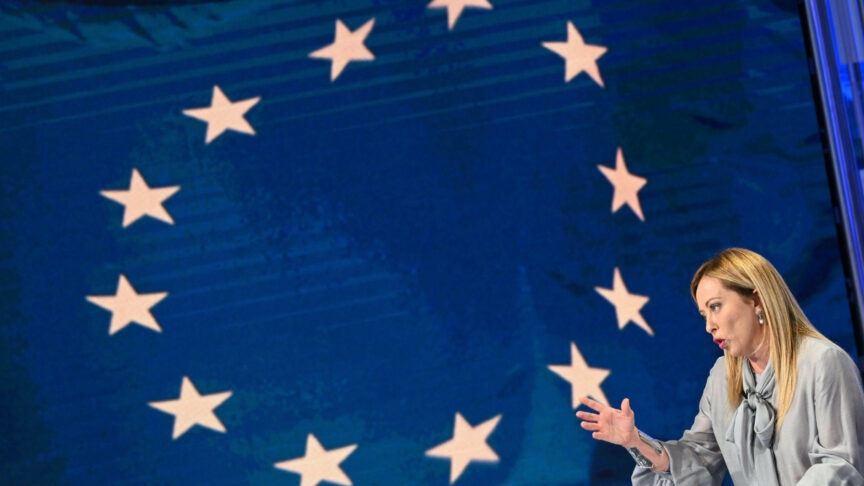
Mark Leonard and his guests discuss the implications of the new government in Rome and its foreign policy agenda, including Russia and China

What defines a strongman, and what varieties of this curious species exist? Are there any strongwomen? And when did the age of strongmen really begin?
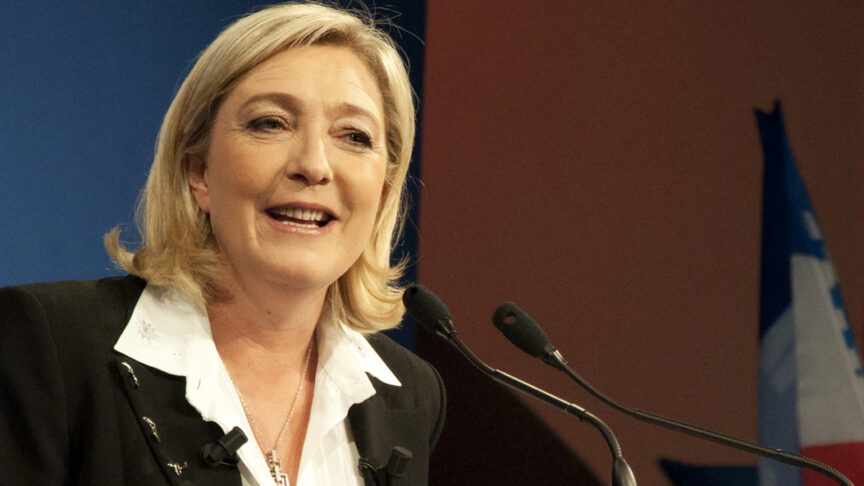
How would a Le Pen presidency affect Europe and the world?
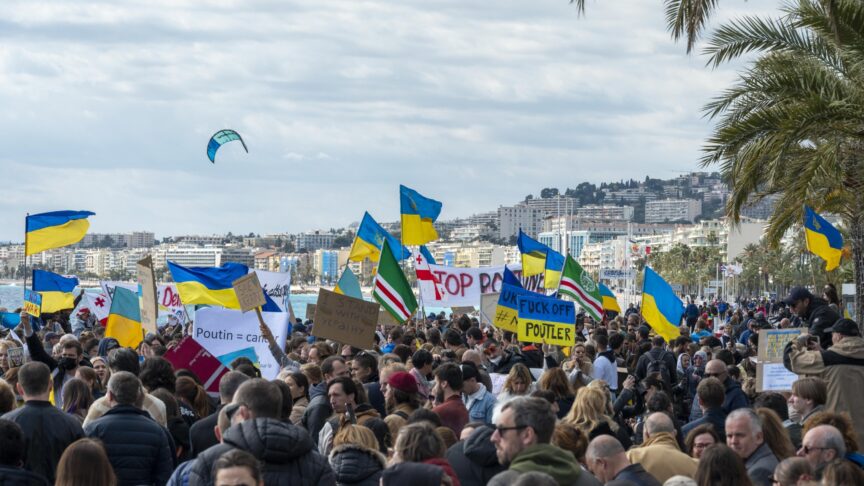
What kind of role did foreign policy play in the election campaigns before Russia’s invasion of Ukraine and what role is it playing now?
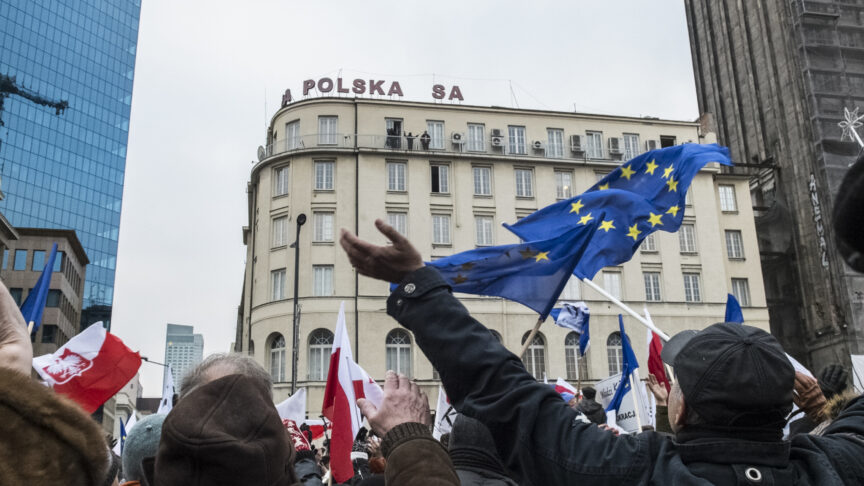
What steps can the EU take to defend its legal order and protect the authority of the CJEU?

As France discovers the new making of its national assembly, this webinar will analyse the election results and reflect on their impact on a geopolitical…
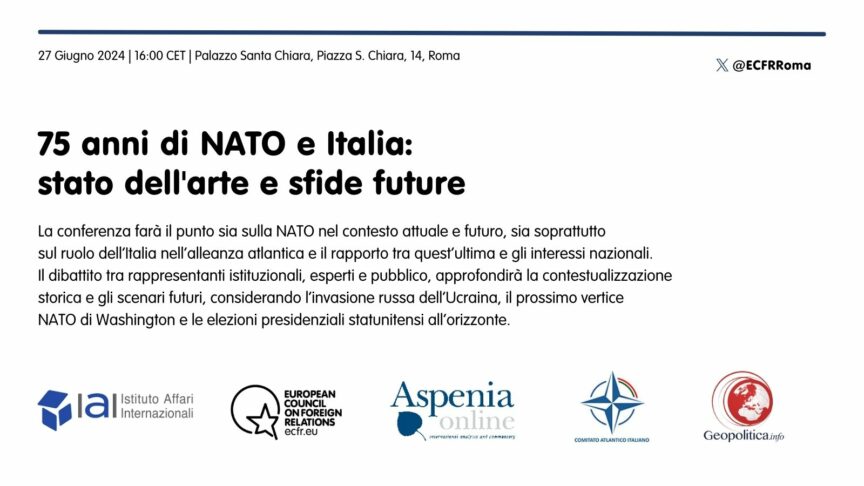
In occasione del 75esimo anniversario della NATO, la conferenza farà il punto sia sulla NATO nel contesto attuale e futuro, sia soprattutto sul ruolo dell’Italia nell’alleanza atlantica e il rapporto tra quest’ultima e gli interessi nazionali

This webinar will provide a snapshot analysis of election results and their implications for Europe’s foreign policy and security agenda. Featuring perspectives from selected ECFR…


Amid a volatile geopolitical environment, ECFR’s recent public opinion poll ahead of the European elections shows that a geopolitical case for Europe resonates with voters,…
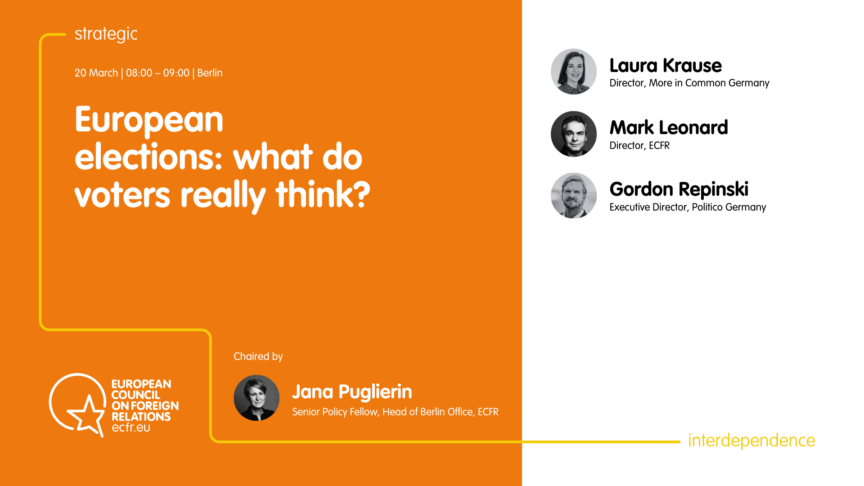
A new opinion poll and four-part strategy on how mainstream parties can campaign to resonate with pro-European voters
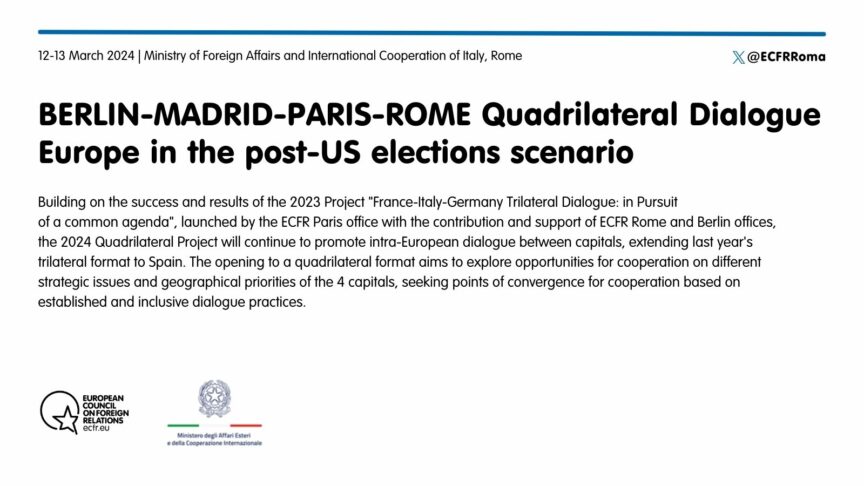
Building on the success and results of the 2023 Project “France-Italy-Germany Trilateral Dialogue: in Pursuit of a common agenda”, the 2024 Quadrilateral Project will continue to promote intra-European dialogue between capitals, extending last year’s trilateral format to Spain
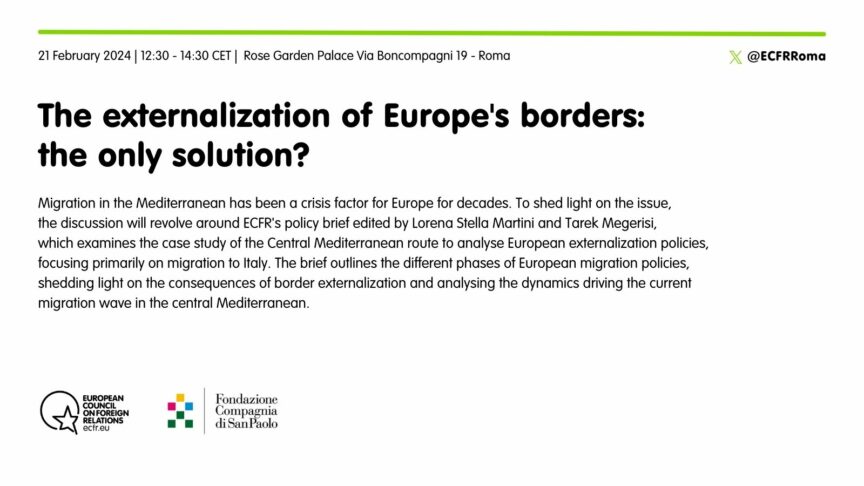
Migration in the Mediterranean has been a crisis factor for Europe for decades. To shed light on the issue, the discussion will revolve around ECFR’s policy brief edited by Lorena Stella Martini and Tarek Megerisi, which examines the case study of the Central Mediterranean route to analyse European externalization policies, focusing primarily on migration to Italy
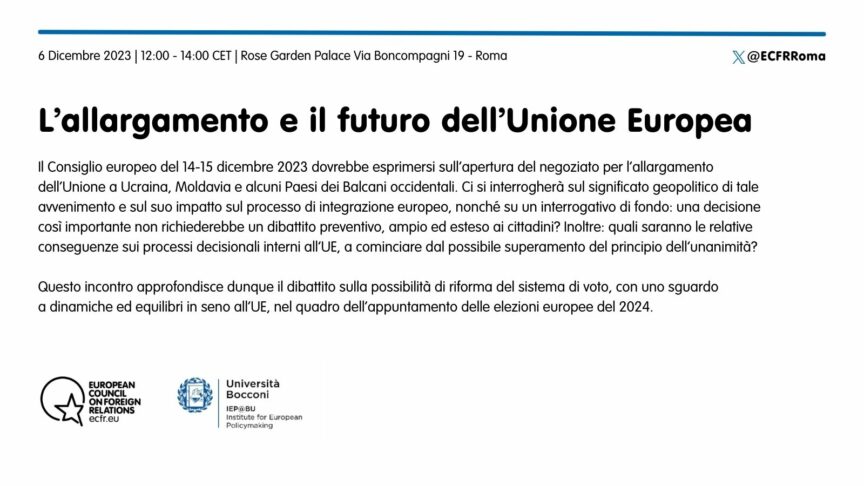
Secondo appuntamento di una serie di tre working lunch realizzati congiuntamente da ECFR Roma, SDA Bocconi e l’Institute for European Policymaking @ Bocconi University
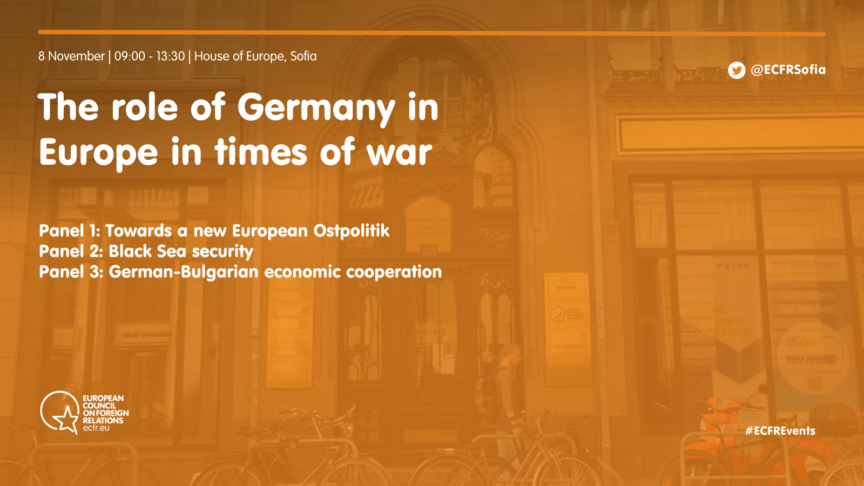
We will discuss Germany’s role in Europe and will reflect on how the new European order is viewed in Berlin